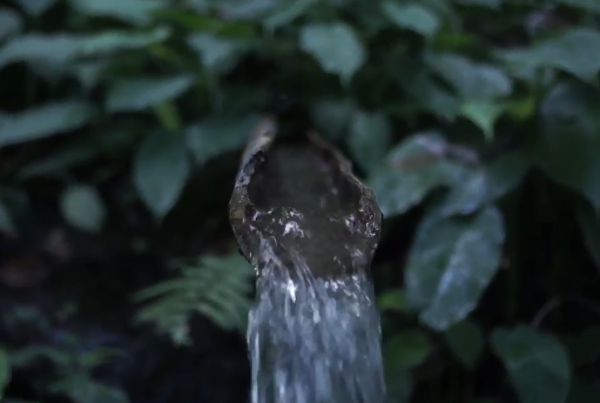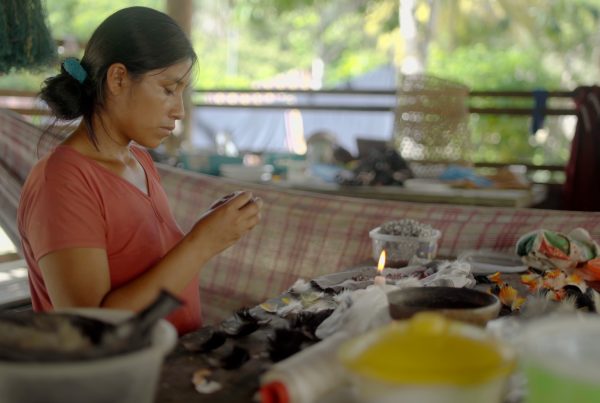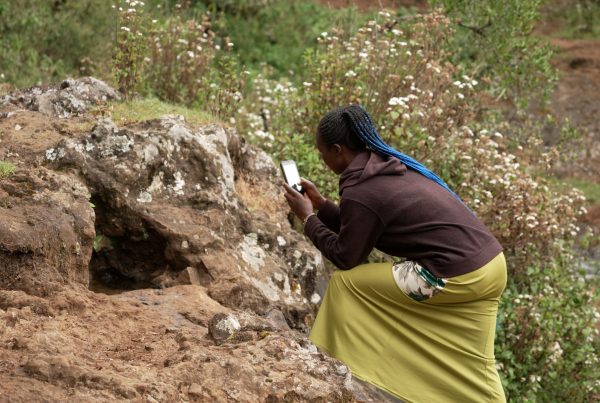Local Biodiversity Outlooks are an opportunity for all organisations and networks of indigenous peoples’ and local communities (IPLCs) working on biodiversity issues to showcase their work.
Who should contribute? This is a general invitation for sharing and contributing to the Local Biodiversity Outlooks Online. Submissions are welcome from all indigenous peoples and local communities (IPLCs) with examples, stories, case studies, information and data.
Please note: Contributions for LBO-2 are now closed, however we still welcome contributions to LBO online.
What is a case study?
Information can be submitted in any form (audio, PowerPoint, Word/PDF documents, photos, videos, and web links) and in most languages (we can have them translated). Contributors can indicate which Aichi Biodiversity Targets and/or Sustainable Development Goals (SDGs) and climate commitments they would like to address with their contribution, or leave it open. For details, and how to submit, see end of document.
About Local Biodiversity Outlooks and Global Biodiversity Outlook
LBO-2 is a joint publication by the International Indigenous Forum on Biodiversity (IIFB), the Indigenous Women’s Biodiversity Network (IWBN), the network of Centres of Distinction on Indigenous and Local Knowledge (COD-ILK) and the Forest Peoples Programme (FPP), with support from the Secretariat of the Convention on Biological Diversity (SCBD).
LBO Online is an online version of the publication Local Biodiversity Outlooks. It uses multimedia formats to collate and share cases and stories provided by IPLCs on their contributions to biodiversity conservation and sustainable use. It is being developed by IIFB, IWBN, COD-ILK and Forest Peoples Programme.
IPLCs are the main contributors to the publications by sharing their living experiences about protecting, governing and managing their lands, territories and waters. LBO-2 is a complementary publication to the fifth edition of the Global Biodiversity Outlook (GBO-5), the flagship publication of the Convention on Biological Diversity on the current state of biodiversity, and nature’s futures.
Background: The Strategic Plan for Biodiversity 2011-2020 and the post-2020 global biodiversity framework
The first edition of the LBO (2016) showcased the contributions of IPLCs to the CBD’s Strategic Plan for Biodiversity 2011-2020 and its Aichi Biodiversity Targets, to tackle the global biodiversity crisis. It demonstrated IPLCs’ achievements in advancing all the twenty Aichi targets and provided recommendations for actions at the local, national and global levels. With the current strategic plan ending in 2020, a process is underway to develop the post-2020 global biodiversity framework, a new plan that is expected to synergise with the 2030 Agenda for Sustainable Development and its sustainable Development Goals (SDGs) and the Paris Accord on Climate Change to find integrated solutions to the biodiversity-climate-development challenge.
GBO-5 will be the final assessment of progress towards achieving the Strategic Plan for Biodiversity 2011-2020. It will also provide key inputs for the post-2020 global biodiversity framework, and recommendations for transformative changes required to achieve Vision 2050 of “living in harmony with nature”. LBO-2 will follow a similar structure to GBO-5, complementing it by highlighting the activities and collective actions of indigenous peoples and local communities contributing to biodiversity conservation and sustainable use, sustainable development and climate change mitigation and adaptation. Its findings and key messages will inform the post-2020 global biodiversity framework from the perspective of indigenous peoples and local communities.
Submissions
Submission can be in the form of stories, case studies, reports, videos, songs, poetry and art, as well as additional data and information showing the current state of biological and cultural diversity on IPLCs’ lands and waters. Your contributions on the following themes are critical for the success of this venture:
- What are your experiences about the inter-linkages between nature and culture on the ground?
- What are some relevant activities and initiatives undertaken by IPLCs towards achieving biodiversity, climate and sustainable development goals and targets?
- How are these contributing towards implementation of national commitments and plans (e.g. National Biodiversity Strategies and Action Plans (NBSAPs) and their mainstreaming in economic, environmental and social policy)?
- What key actions are recommended to Parties and others arising from these experiences by IPLCs at all levels?
The first draft of LBO-2 aims to be completed by the end of August 2019, with a peer review expected to take place in September 2019. The publication will be launched in May 2020, in conjunction with the GBO-5. It will be available in English, Spanish and French, and the summaries should be available in all the six UN languages.
Each of the Aichi Biodiversity Targets and the sections on the SDGs, climate change and transformative change is expected to highlight one central case study, which will be complemented with other relevant material on status and trends, brief examples, data and references.
How to submit a case study
LBO Online will host all contributions, both in written and visual formats. All input is therefore welcome and will be used. All published material will require FPIC, intellectual property rights and copyrights from the contributing community(ies), including photo material.
Contributions for LBO-2 are now closed, however we still welcome contributions to LBO online.
Please send your contributions or queries to biodiversity@forestpeoples.org
Hardcopies may be sent to: Forest Peoples Programme, 1c Fosseway Business Centre, Stratford Road, Moreton-in-Marsh, GL56 9NQ, United Kingdom



